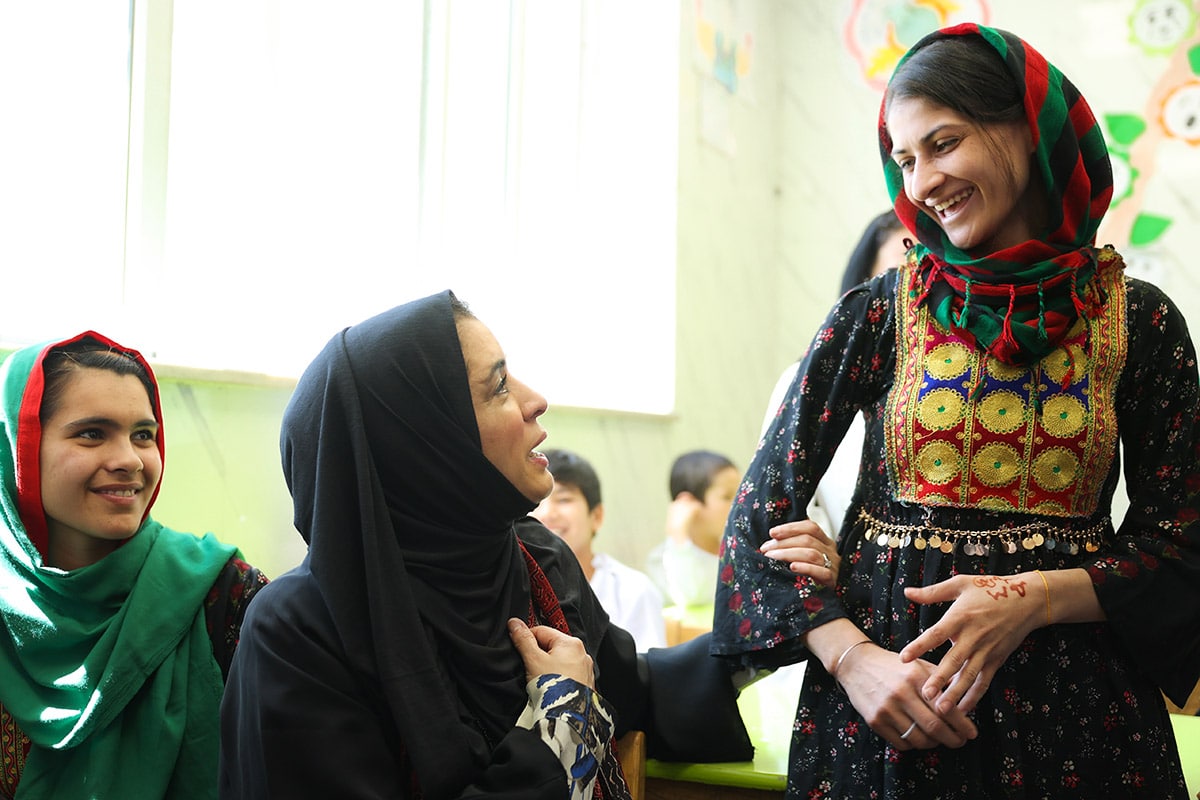WHO Director Wraps Up Mission in Kabul, Afghanistan, Emphasizing Health Priorities

Kabul, Afghanistan, May 10, 2024 — Dr. Hanan Balkhy, the WHO Regional Director for the Eastern Mediterranean, concluded a significant three-day visit to Kabul, Afghanistan, marking a pivotal moment in addressing critical health issues and bolstering efforts towards polio eradication.
Dr. Balkhy’s visit, which followed a collaborative mission with the Global Polio Eradication Initiative (GPEI) in neighboring Pakistan, aimed to engage with de facto authorities and health partners to discuss pressing health concerns and reinforce WHO’s commitment to improving healthcare access in Afghanistan.
The focus of the discussions revolved around promoting equitable access to healthcare, empowering females, expanding health workforce education, addressing substance abuse, and eradicating polio, particularly given Afghanistan’s status as one of the two remaining countries where polio remains endemic.
While in Kabul, Dr. Balkhy, alongside Mr. Sanjay Wijeskera, the Regional Director for South Asia, convened with partners and stakeholders to emphasize WHO and GPEI’s dedication to closing the remaining gaps for polio eradication in Afghanistan. With just three reported cases this year and the virus confined to specific regions, Afghanistan stands at its best chance to eliminate polio. Dr. Balkhy hailed the decision to reinstate house-to-house polio vaccination activities in the South Region as a crucial step forward in reaching more vulnerable children.
Furthermore, Dr. Balkhy reiterated WHO’s commitment to convening a Health Dialogue between Afghanistan and Pakistan, aimed at addressing broader health needs and fostering stronger collaboration on polio eradication. This proposal, embraced by the Government of Pakistan, underscores the regional cooperation necessary to tackle complex health challenges effectively.
During her visit to various health facilities, including the Indira Gandhi Children’s Hospital and the Kabul 100-bed Females and Children Drug Addiction Treatment Center, Dr. Balkhy witnessed firsthand the impact of WHO-supported initiatives in providing essential healthcare services and addressing substance abuse issues. Her emotional encounter with young girls undergoing addiction treatment highlighted the human aspect of the healthcare crisis in Afghanistan.
Dr. Balkhy emphasized the critical importance of enhancing medical staff capacity and improving accessibility to healthcare services for vulnerable populations throughout the country. Recognizing the integral role of women’s education in influencing health outcomes, she reiterated her commitment to advocating for female education and rights as part of broader efforts to advance Afghanistan’s health agenda.
Reflecting on WHO’s role in Afghanistan, Dr. Balkhy emphasized, “WHO has played a fundamental role in polio eradication efforts in Afghanistan, as well as responding to essential, lifesaving needs across the country.” She affirmed WHO’s dedication to expanding equitable access to quality healthcare, strengthening the capacity of the health workforce, especially women, and addressing substance abuse, aligning with regional priorities.
The visit occurred against the backdrop of a severe humanitarian crisis in Afghanistan, with soaring levels of food insecurity, displacement, and poverty. The number of people in need of health assistance has surged, underlining the urgency of concerted efforts to alleviate the suffering of millions affected by the crisis.
Dr. Balkhy’s visit signifies a renewed commitment to addressing Afghanistan’s pressing health challenges and underscores the importance of sustained collaboration and support from the international community in advancing the country’s healthcare agenda and alleviating the humanitarian crisis.
Observer Voice is the one stop site for National, International news, Sports, Editor’s Choice, Art/culture contents, Quotes and much more. We also cover historical contents. Historical contents includes World History, Indian History, and what happened today. The website also covers Entertainment across the India and World.

